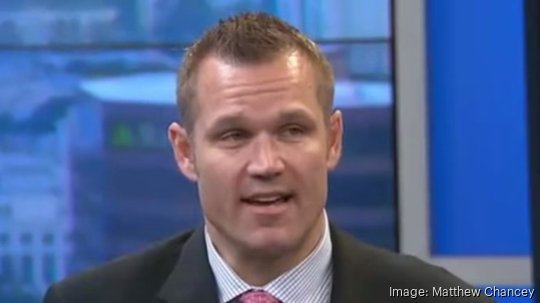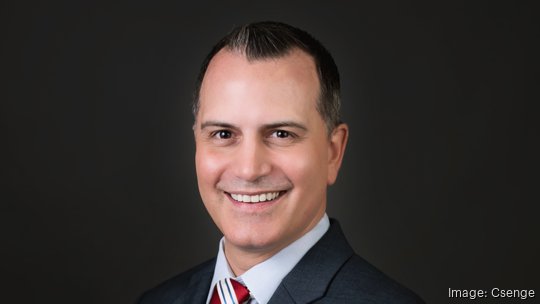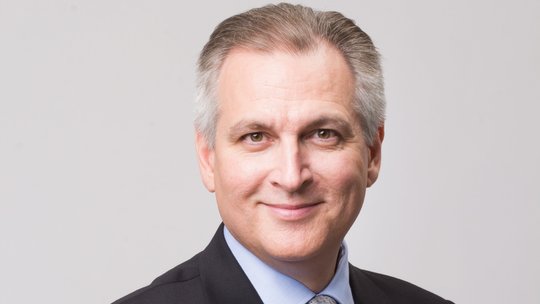The use of artificial intelligence in wealth management isn't new. It's been in the mix for more than a decade. However, its users feel less threatened today than when AI first broke into the space. Some managers use it as a timesaver that adds efficiencies; others use AI as a partner, providing numbers that augment the advice given to clients, human to human.
President Jay Pelham of Miami-based Kaufman Rossin Wealth & Insurance said his firm has integrated AI into its business model, which has “accelerated the time that it takes to deliver solutions to our clients.”
Kaufman Rossin uses predictive modeling powered by AI to map out retirement scenarios that help clients make financial plans. That may have taken longer before the most current, sophisticated digital tools existed.

Expert questions the threat of AI
Orlando-based certified financial planner and private equity consultant Matthew Chancey said he has been hearing a lot about how AI could transform the finance world and take people’s jobs, but he doesn’t believe it.
“This is no different than when everybody freaked out about these automated investment platforms called robo-advisors 10 or 15 years ago,” said Chancey, referring to Betterment and Wealthfront, which launched in 2008 as tools for financial managers to better handle clients' assets.
According to Chancey, who also is founder of Tax Alpha Title in Winter Park, a lot of financial advisors felt threatened by algorithm-driven platforms, but before long, the fear subsided.
Today, Chancey believes while technology always will advance, the overall structure of the wealth management industry will stay fundamentally the same.
How AI helps some financial planners
Meanwhile, there are some wealth managers who embrace the results they get with AI.
For instance, Csenge Chief Investment Officer Eric Caisse of Clearwater noted that now, there are some firms that only do algorithmic trading. "It’s more impactful in terms of the block-and-tackle stuff that can be done much quicker."

But back then, regulators scrutinized the algorithmic platforms to make sure they complied with regulations related to investor protection, disclosure and fiduciary responsibilities. “That’s exactly what’s happening now with AI,” Caisse said.
Pelham said his firm adopted an AI policy that is “rather detailed, but at a high level it includes some key elements in terms of ethical considerations, data privacy, security and human oversight.”

Back in 2010, Betterment and Wealthfront evolved into consumer-facing online services that use algorithms to manage investments automatically based on an investor's preferences and goals.
Wealth management and the human connection
Only a small percentage of investors adopted those platforms to manage their own investments, said Chancey, “but most people still want to talk to real people about their money.”
He went on to describe a scene in which a back-end financial management team of “very smart people” runs through portfolio analytics while an army of relationship managers deals with clients.
“New relationship management recruits are tasked with setting appointments with people they know who have money to invest,” said Chancey. “It's a lead generation mechanism. Merrill Lynch, UBS, Edward Jones, Northwestern Mutual — the big brands — they don't care if any of their actual financial advisors on the front lines survive the business. They just care that they're connected to those 100 or 200 people. There's no incentive to educate those recruits, because you don't need to know anything about finance to do that job.”
That’s why 95% of relationship managers leave the industry after about five years, he said. “They leave and then some middle managers reach out to those 100 or 200 clients who were brought in by the newbie who’s now gone and say, ‘Little Johnny was a shining star. We thought he was going to be phenomenal. We just don't know what happened, you know? But we value the relationship that little Johnny helped facilitate and we would love to make you a bigger client of our firm.’”
AI and maximized efficiency in wealth management
A 2024 report from New York-based McKinsey & Co., US wealth management, "US wealth management: Amid market turbulence, an industry converges," said a key function of AI application in wealth management is to help financial planners save time on tasks like creating meeting notes, drafting financial plans and client briefs, and supporting compliance reporting. According to McKinsey estimates, generative AI could “help the average wealth adviser reorient 20 to 30% of their time toward growth-related tasks.”

Richard Buttimer of University of North Florida in Jacksonville had a similar take. "I liken AI tools for trained professionals to the advent of spreadsheets for accountants. It didn't make accountants obsolete. Spreadsheets just made accountants live more efficiently," said the dean and director of UNF's Fintech Academy.
This moderate view of AI’s impact is in line with Chancey's. “The financial services industry historically has been a recruiting industry, not an execution industry,” Chancey said. “All the big brands that you know ... operate on the same business model, and AI hasn’t changed that.”
That could be because many boots-on-the-ground financial planners leave it to their companies to decide how and when AI and other technologies will play a role in their work.
Orlando-based Ken Bradshaw, a certified financial planner with San Diego firm LPL Financial, said he trusts top-level decision makers when it comes to cleaning and organizing data and implementing AI tools.
“I know the firm does that. I'm not aware of the specifics or best practices in that space,” he said. “I know that we've had many conversations making sure AI is managed and leveraged accordingly, and I'm sure that as time goes on, we'll continue to elevate the focus on that.”
By the numbers:
- 20%-30% of the average wealth management advisor's time could be spent toward growth-related tasks with the help of AI.
- 6 out of 10 financial advisors are interested in taking AI for a test run.
- 98% of wealth advisors believe AI is transforming how advice is created for, delivered to and consumed by their clients today.
- 99% of wealth advisors believe AI plays a role in the future of financial advice.
- 83% of wealth advisors believe AI can reach a level of sophisticated advice and planning within 18 months that ultimately will leave financial advisors competing with an algorithm for clients.
- 55% of wealth advisors believe AI will transform the future of financial advice within the next three years.
- 8 out of 10 advisors believe AI-powered notifications of client life events in real time would be one of AI's clearest, measurable benefits to them; and would prefer to use AI tools to automate time-consuming and manual tasks.
- 55% of financial advisors say insights generated by AI were too complicated to use.
Sources: 2024 McKinsey & Co. report; 2024 SmartAsset article; Accenture's "AI in Wealth Management" study
Sign up here for the Business Journal’s free morning and afternoon daily newsletters to receive the latest business news impacting the First Coast. For more business intelligence, follow us on LinkedIn, Facebook, Twitter and Instagram.



